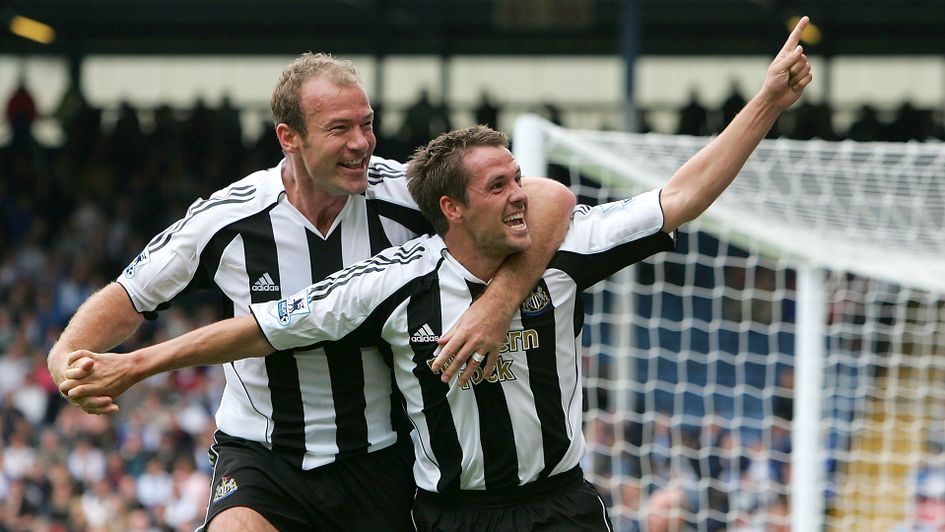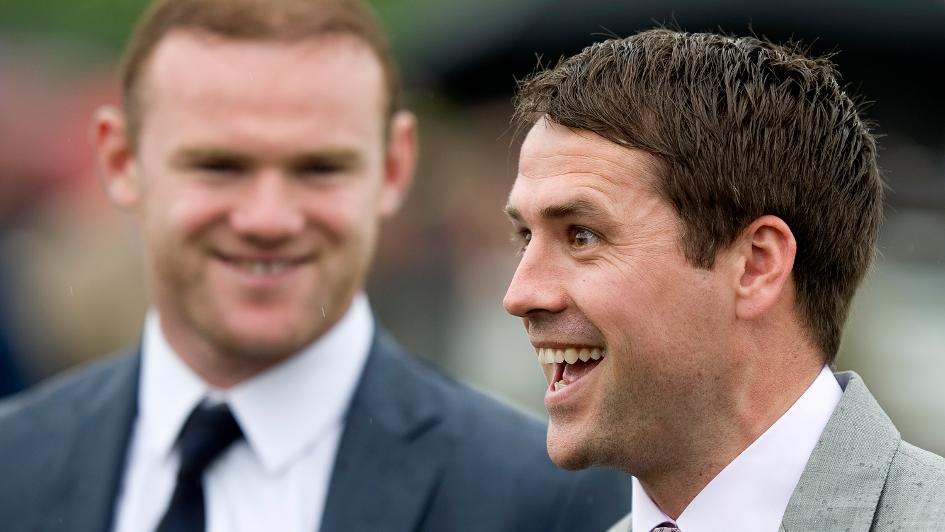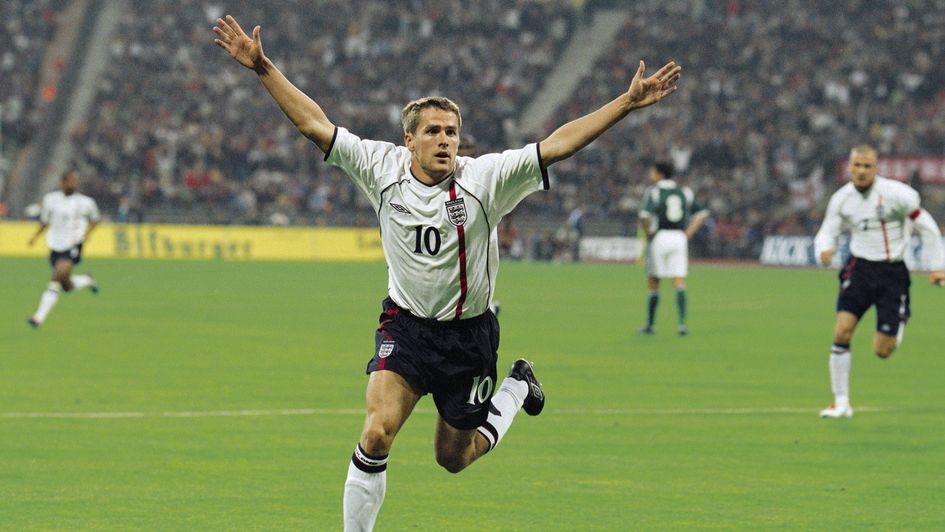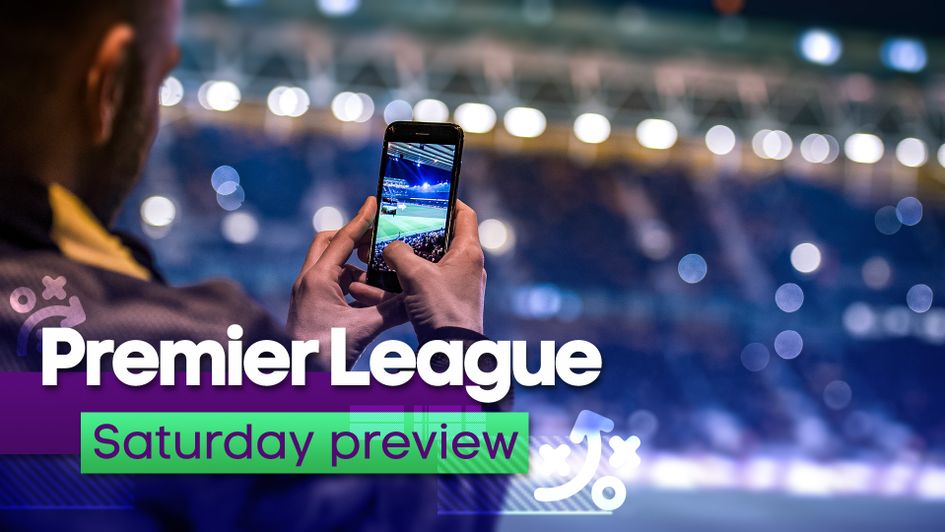For a man who admits he peaked at 19, Michael Owen is philosophical about turning 40 this weekend.
However, he is concerned retirement is a major problem for footballers who struggle to cope both mentally and financially.
While he has considerable business interests, not least his Manor House Stables now racing has become his sporting passion, as well as media work, he knows a number of his contemporaries are struggling.
"When you retire you are worthless to your employers, you are pretty worthless to the game and to get your head around that is quite tricky," he told the PA news agency in an exclusive interview.
"The stats are quite staggering when you look at footballers retiring - the breakdown of marriages, what they turn to. A lot of it doesn't surface, where they are financially, mentally.
"People think, 'They're all on 100-grand a week'. Go and check, there are more bankrupt than living the life of luxury.
"It is the most dangerous sport mentally. You are retired at 33. If you haven't got your head screwed on setting up a business or doing something to keep you going you would go doolally.
"I'd like to think I came through it and I'm in a good place, but I see all the time old players I used to play with and it is heartbreaking."
In his current book Michael Owen Reboot the former England, Liverpool, Real Madrid and Manchester United star talks about "dark forces" and being on a "cliff edge" in 2014, the year after he retired.

In his interview he spoke of the "emptiness" of not training, of not feeling "special" any more and asking himself questions about the purpose of his life.
"It has some side-effects and it did with me, fortunately not anything serious but it easily could have been," added Owen, whose relationship with wife Louise suffered.
"It is hard to explain. Even when I knew I was rubbish at 33 compared to what I was, I still thought I was the best player in the world. It's a struggle and you're fighting your own brain."
Part of Owen's 'problem' was that he packed in so much so soon, making his Liverpool debut aged 17, winning back-to-back Golden Boots in his first two full seasons and showcasing his talent to the world with a stunning World Cup goal for England at 18.
By the end of 2001 he had won a treble with Liverpool, scored a hat-trick in the famous 5-1 win against Germany and lifted the Ballon d'Or.
From that point it was downhill all the way.
"Up until the age of 20 I was one of the best players in the world at that age," said Owen, who was hampered by chronic hamstring problems.
"That continued for a certain period of time, but then injuries slowed me down. I was probably on the decline at 23.
"When you rupture one of your hamstrings and it doesn't repair I was compromised. That happened at 19 and I won the Ballon d'Or at 21.
"I think I was at my very best at 17, 18, 19 and then at 21, 22 I was still right up there but on the decline."

Owen's 1998 World Cup goal against Argentina elevated him to a different level, but his personal highlight was his 2001 FA Cup final winner against Arsenal.
"The better goal was the goal against Argentina because of the quality of it, but if you said to me now I could rewind my life and have one day again then I would say Cardiff against Arsenal in the FA Cup final," he said.
With a landmark birthday to celebrate on Saturday it seems an appropriate time to reflect.
"I'm really pleased I played for Real Madrid, it was an opportunity to try something different, it was the Holy Grail in many ways to go and play for Barcelona or Real Madrid," he said.
"Following that I wished things had been different and I had come back to Liverpool and lived happily ever after.
"But I would still sign for Man United because that was the best option at the time.
"I'm not ashamed of what I did despite people wanting me to be ashamed.
"It was never my dream to play for Stoke, Man United or Newcastle but that's where my career took me."
- Michael Owen Reboot, published by Reach Sport, is on sale now in hardback, digital book and audiobook.
Career honours

Liverpool
- FA Cup: 2001
- League Cup: 2001, 2003
- UEFA Cup: 2001
- UEFA Super Cup: 2001
Manchester United
- Premier League: 2011
- League Cup: 2010
Individual
- Ballon d'Or: 2001
- BBC Sports Personality of the Year: 1998
- Premier League Golden Boot: 1998, 1999
- Premier League Player of the Season: 1998
- PFA Young Player of the Year: 1998
- World Cup Best Young Player: 1998
Career highlights

- June 1998: Argentina v England
The day Owen announced his talent to the world as a precocious 18-year-old. He had already scored earlier in the World Cup, in the group stage defeat to Romania, and won the penalty for England to equalise against Argentina, but his run from 50 yards out, skipping past two defenders to score in the last-16 tie made him an overnight sensation.
- 2001: Arsenal v Liverpool
In what has become known as 'The Michael Owen Final', the then 21-year-old starred as Liverpool triumphed 2-1 in dramatic circumstances. Trailing 1-0 with seven minutes remaining, Owen smashed home an equaliser from close range and then, in the 88th minute, raced onto Patrik Berger's long pass forward and evaded the attentions of Lee Dixon and Tony Adams to fire an angled shot beyond David Seaman with his weaker left foot before celebrating with a hand spring.
- September 2001: Germany v England
A memorable night for all England fans but particularly Owen, who scored one of the most famous hat-tricks in the nation's history as the Three Lions ran out 5-1 winners in Munich. Having equalised the host's opener early on he exposed the space in Germany's defence in the second half, first smashing home Emile Heskey's knockdown before clinically converting Steven Gerrard's through-ball for his third.
- December 2001: Ballon d'Or
Owen capped a stellar year in which Liverpool won five trophies, saw him score 31 goals for the club - many of which helped them qualify for the Champions League for the first time - in addition to his England exploits in Munich, by being crowned European Footballer of the Year. In doing so he became the first Englishman since Kevin Keegan in 1979 to achieve the feat.
- April 2005: Real Madrid v Barcelona
Owen struggled to flourish at the Bernabeu as he was behind Raul and Ronaldo in the pecking order but still had a decent goalscoring record. His highlight was scoring in a 4-2 drubbing of arch-rivals Barcelona. Again, though he had to take a back seat to the club's megastars as Zinedine Zidane, Ronaldo and Raul all netted before Owen made it 4-1 after running onto a David Beckham pass
- September 2009, Manchester United v Manchester City
After Craig Bellamy's 90th-minute equaliser the game appeared to be done at 3-3. However, Owen, who had been on the pitch barely 12 minutes, wrote himself into Manchester derby folklore by converting Ryan Giggs' pass with the last kick of the game in the sixth added minute to seal a 4-3 victory for the Red Devils.
Former team-mates on Owen
The PA news agency spoke exclusively to two of his former Liverpool team-mates to get their thoughts on the ex-Real Madrid, Manchester United, Newcastle and Stoke forward.
Carl Markham asked Jamie Carragher and Steve McManaman for their memories of Owen breaking through and their favourite moments of his career.
JAMIE CARRAGHER

- Early impressions
"We didn't have the greatest of strikers in the youth cup run of 1996 and we got Manchester United in the quarter-final and it was a step up in the opposition we had played. Steve Heighway didn't feel we could beat them with the strikers we had so he said 'There's a kid who is still at school called Michael Owen', who was at the national school at Lilleshall, and he said 'I'm going to bring him back'. I'd never seen him play before and he scored a hat-trick against Man United. So you knew straightaway he was something special. I think he is the only young player I've ever thought will 100 per cent make it and it was pretty early on. I think everyone knew. When you saw what he did in that youth cup - and he was two years younger than everyone else - it was almost impossible for him not to be a star really."
- Favourite moment
"I'd say the winning goal in Cardiff in the (2001) FA Cup final. He scored the first one and this one was on his left foot and that is the one area he was always criticised for. It's known as 'the Michael Owen cup final': without him the cup was gone. That led him on to win the Ballon d'Or, the last English player to win it - and God knows when the next English player will win that trophy. It was probably underplayed at the time, how big an achievement that was. No doubt, that was Michael at his best. To do it considering how poorly we played and how much Arsenal dominated us made it all about him. There can't be many of us who came out of that game pleased with our performance except Michael, so that shows why it should be named after him."
- Assessment of his career
"I think Michael's career is split into two: the first half of his career he was a world-class striker, in the second half he was just a Premier League striker. I think he would say that himself and that was probably down to injuries and the choices he made. The unfortunate thing is I think we remember players for the second half of their careers. But if you think what he was achieving at a young age: two Golden Boots at 18 and 19, that goal for England, a cup final, Ballon d'Or, scoring three in Germany, BBC Sports Personality of the Year - it's some CV. It's unfortunate but he probably reached his career peak by the time he was 22, 23. That shouldn't take away from what he did in those years. Very rarely, if ever, do you see a young player make an impact like that. I think something like that happens every 30 to 40 years."
STEVE McMANAMAN
- Early impressions
"He was always very well thought of in the club and was playing in a very good and strong youth team with Stevie (Gerrard), Carra (Carragher) and Davie Thompson. I certainly knew about him because I'd watch youth team games and you always knew he was there. It wasn't a surprise he was included in the squad because Liverpool at that time were always willing to bring in some of the young players to train with the first team. It wasn't a surprise Michael played in the first team at an early age. I think the time you knew he had gone through the stratosphere was when he scored for England (at the 1998 World Cup), you knew his life was going to change then."
- Favourite moment
"I remember his first goal at Wimbledon because I was involved in it. I liked his goals in the hat-trick at Newcastle away, the one where he rubs his hands together. I haven't got a particular moment as he scored that many goals. They were nice goals he scored at that time. You knew whenever you were involved in setting people up, whether it was him or Robbie (Fowler), you could trust them to score more than most."
- Assessment of his career
"His career was brilliant but was just hampered towards the end through numerous injuries which probably took away a yard of his pace. That probably happens with 90 per cent of footballers, unfortunately. But all in all, and I work a lot with him now and go to different parts of the world with him, he's an absolute superstar, one of the most famous footballers I've seen in those areas and I've seen lots of them."
Saturday's Premier League tips
Betting previews, Super 6 predictions & best bets for Saturday's action, including Liverpool, Chelsea and Leicester.
Title's gone for stubborn Pep
Charlie Nicholas previews Arsenal v Man City, saying Freddie Ljungberg isn't the man for Arsenal while Pep Guardiola's errors have already cost Man City the title.
Sporting Life Accumulator
With two winners in recent weeks we're hoping for another as we pick out four teams from across the Sky Bet EFL.
Podcast: Weekend Best Bets
Download for free Sporting Life's Weekend Best Bets podcast for our tips on racing and football for the weekend ahead.













